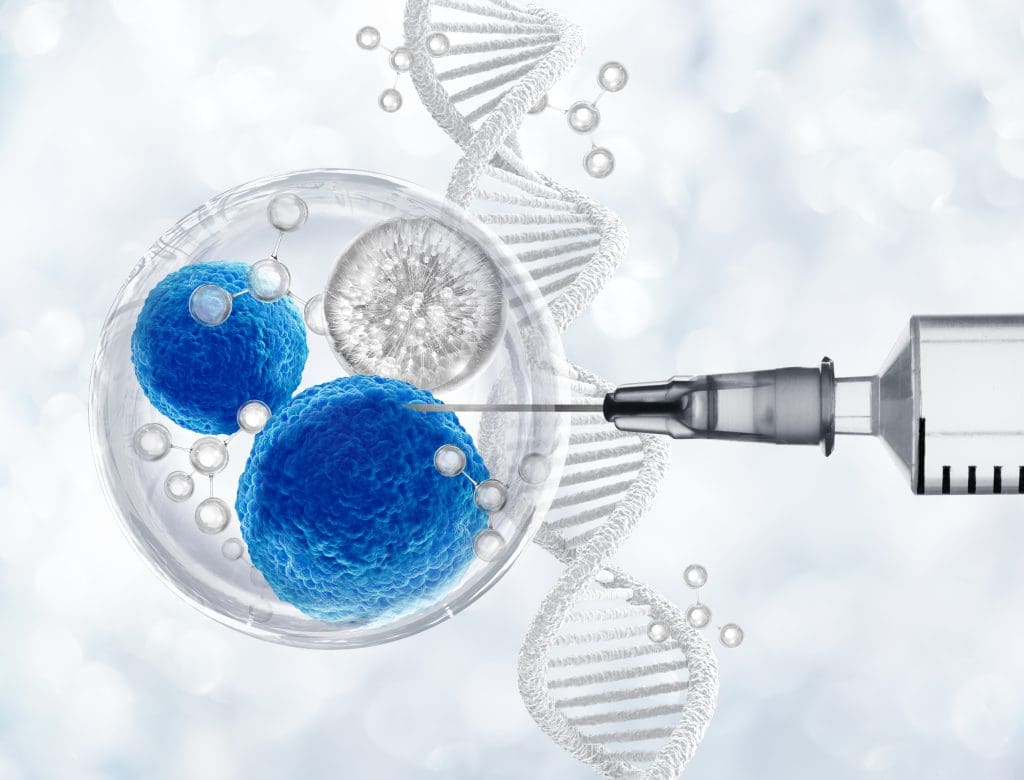best tea for cancer
Cancer treatment is tough and complex. Proper hydration and nutrition are key for patients’ health and well-being. They stress the need for the right drinks to help in recovery.
The right drinks help cancer patients stay hydrated and manage symptoms. They also help keep patients strong during treatment. Herbal teas have many health benefits. Some may be better for cancer patients than others.
Key Takeaways
- Proper hydration is vital for cancer patients during treatment.
- Nutrition is important for supporting patients’ overall health.
- The right drinks can help manage symptoms and maintain strength.
- Herbal teas have numerous health benefits for cancer patients.
- Some teas may be more beneficial than others for cancer patients.
Understanding Nutritional Needs During Cancer Treatment

Cancer treatment changes a patient’s nutritional needs and how much water they need. Eating well is key to staying strong and healing. Healthy drink ideas are important for these needs.
How Cancer and Treatment Affect Hydration
Cancer and treatment can make it hard to stay hydrated. Side effects can make drinking water a challenge.
Common Side Effects That Impact Fluid Intake
- Nausea and vomiting
- Dry mouth
- Difficulty swallowing
- Mouth sores
These side effects can make it hard to drink enough water. This can lead to dehydration if not fixed.
Dehydration Warning Signs
Knowing the signs of dehydration is key. Look out for:
- Dark yellow or brown urine
- Fatigue
- Dizziness
- Dry skin
Spotting these signs early can help keep you hydrated.
The Importance of Proper Nutrition and Hydration
Good nutrition and hydration are critical during cancer treatment. They help keep you strong and boost your immune system. Adding healthy drink ideas like herbal teas and clear broths can help. The American Institute for Cancer Research says staying hydrated is very important.
The Best Tea for Cancer Patients: Evidence-Based Options
Tea can be a great addition to a cancer patient’s treatment plan. Some teas have shown benefits in cancer care.
Green Tea and Its Anti-Cancer Properties
Green tea is known for fighting cancer. It has lots of EGCG (Epigallocatechin gallate). EGCG can stop cancer cells from growing and make them die.
EGCG and Other Beneficial Compounds
EGCG is a strong antioxidant. It helps stop cancer cells from growing and spreading. Green tea also has caffeine and L-theanine, which add to its health benefits.
Recommended Brewing Methods
To get the most from green tea, brew it right. Use water between 160 °F and 170 °F. Steep for 1 to 3 minutes. Adjust the time to find the perfect taste.
Ginger Tea for Nausea Relief
Ginger tea is good for cancer patients with nausea. It has anti-inflammatory properties that calm the stomach and reduce nausea.
Other Beneficial Herbal Teas
Other herbal teas can also help with cancer treatment side effects. Chamomile tea and peppermint tea are good examples.
Chamomile for Sleep and Anxiety
Chamomile tea helps with sleep and anxiety. Its calming effects are great for bedtime.
Peppermint for Digestive Support
Peppermint tea supports digestion. It helps with bloating and gas. Its cooling effect soothes the stomach.
| Tea Type | Benefits |
| Green Tea | Anti-cancer properties, antioxidant-rich |
| Ginger Tea | Nausea relief, anti-inflammatory |
| Chamomile Tea | Sleep aid, anxiety relief |
| Peppermint Tea | Digestive support, bloating relief |
Adding these teas to their diet can help cancer patients feel better during treatment.
Hydration Fundamentals for Cancer Patients
Hydration is key for cancer patients. It helps their bodies heal and recover. Drinking enough fluids manages side effects, keeps energy up, and boosts overall health.
Water Intake Guidelines During Treatment
Cancer patients should drink eight to ten glasses of fluid daily. Your healthcare provider might suggest more. It’s best to drink fluids all day, not just at once.
Electrolyte-Enhanced Water Options
Electrolyte-enhanced water is great for cancer patients. It replaces lost electrolytes. Electrolytes are vital for staying hydrated and supporting the body.
Natural vs. Commercial Electrolyte Drinks
Natural and commercial electrolyte drinks both have their benefits. Coconut water is a natural source of electrolytes. Here’s a comparison:
| Characteristics | Natural Electrolyte Drinks | Commercial Electrolyte Drinks |
| Source of Electrolytes | Derived from natural sources like coconut water or fruit | Formulated with specific electrolyte concentrations |
| Additives and Preservatives | Typically free from artificial additives | May contain artificial flavors and preservatives |
| Cost | Can be more cost-effective | Varies, often more expensive than natural options |
Making Electrolyte Water at Home
Making electrolyte water at home is easy. Mix water with a pinch of sea salt and fresh lime or lemon juice. This homemade version is healthy and affordable.
Nutritious Smoothies and Shakes for Cancer Recovery
nutritious smoothies for cancer recovery
Smoothies and shakes are great for cancer patients. They are easy to make and full of nutrients.
Protein-Rich Smoothie Recipes
Protein is key for cancer patients. It helps repair tissues and keeps strength up. Smoothies can be made high in protein by adding different protein sources.
Plant-Based Protein Options
Plant proteins like pea, hemp, and almond butter are great for smoothies. They add protein, healthy fats, and fiber. For example, a smoothie with almond butter, banana, and pea protein is both tasty and nutritious.
Dairy-Based Protein Options
If you can handle dairy, Greek yogurt and milk are good protein sources. Adding them to smoothies boosts protein. A mix of Greek yogurt, berries, and honey is delicious and protein-rich.
Fruit and Vegetable Smoothies for Nutrient Density
Fruit and vegetable smoothies are packed with nutrients. They have vitamins, minerals, and antioxidants that help with health and recovery.
Anti-Inflammatory Smoothie Combinations
Some ingredients like berries, turmeric, and ginger fight inflammation. Mixing them in smoothies can help reduce inflammation. For example, a smoothie with berries, turmeric, and almond milk is soothing and nutritious.
Texture Modifications for Sore Mouths
For those with sore mouths or throat irritation, smoothie texture matters. Use softer fruits and avoid acidic ones. A little honey can also soothe the throat.
Best Juice Options for Chemo Patients
The right juice can offer essential nutrients and comfort to those going through chemotherapy. It’s a simple way to get important nutrients. This can help manage side effects and support health.
Antioxidant-Rich Juice Combinations
Antioxidant-rich juices are great for chemo patients. They fight oxidative stress. Tastes like carrot, apple, and ginger or beet, carrot, and orange are not only tasty but also full of vitamins and minerals.
Low-Acid Juice Options for Sensitive Stomachs
Some chemo patients might find acidic juices hard to handle. Options like cucumber, celery, and pear juices are gentle and soothing for the stomach.
Juicing Tips for Maximum Nutrition
To get the most from juicing, think about how you juice and store the juice.
Cold-Pressed vs. Centrifugal Juicing
Cold-pressed juicing is better than centrifugal juicing. It uses less heat, keeping more nutrients.
Storage and Preparation Guidelines
Drink juices right away or store them in airtight containers in the fridge. Make sure to wash and peel your fruits and veggies well before juicing.
| Juice Combination | Nutritional Benefits | Recommended For |
| Carrot, Apple, Ginger | High in Vitamin A, antioxidants | General Health, Anti-Nausea |
| Beet, Carrot, Orange | Rich in Vitamins A, C, and Potassium | Energy Boost, Antioxidant Support |
| Cucumber, Celery, Pear | Low-acid, hydrating, rich in minerals | Sensitive Stomachs, Hydration |
Soothing Broths and Soups in Liquid Form
healthy drinks to make
Patients with cancer often struggle to eat solid foods. Liquid nutrition is key during this time. Soothing broths and soups are easy to digest and packed with nutrients.
Bone Broth Benefits During Cancer Treatment
Bone broth is full of collagen and amino acids. These are important for healing and keeping the gut healthy. The gelatin in bone broth can calm the digestive system, reducing inflammation and improving nutrient absorption.
Collagen and Amino Acid Support
The collagen in bone broth helps connective tissues. Amino acids like glycine and proline help reduce inflammation and aid in healing.
Easy Preparation Methods
Making bone broth is simple. Just simmer animal bones in water for 12-24 hours. You can add vegetables and herbs to make it taste better.
Vegetable Broth Recipes for Plant-Based Nutrition
Vegetable broth is a great choice for those who prefer plant-based foods. It’s made by simmering vegetables like carrots, celery, and onions in water. It’s full of vitamins and minerals and can be made to taste with different vegetables.
| Broth Type | Nutritional Benefits | Preparation Tips |
| Bone Broth | Rich in collagen and amino acids | Simmer bones for 12-24 hours |
| Vegetable Broth | High in vitamins and minerals | Simmer a variety of vegetables |
Adding these broths to a cancer patient’s diet can offer much-needed nutrition and comfort. Whether it’s bone broth or vegetable broth, these liquids are key to supporting health during treatment.
Plant-Based Milk Alternatives for Cancer Patients
Plant-based milks are a great choice for those fighting cancer. They are full of nutrients and often have extra vitamins and minerals.
Almond, Oat, and Soy Milk Comparisons
Almond milk is low in calories and packed with vitamins. Oat milk is creamy and has lots of fiber. Soy milk is high in protein and often has calcium and vitamin D added.
Fortified Options for Additional Nutrition
Fortified plant-based milks add extra nutrition for cancer patients. They can have calcium, vitamin D, and protein added. This makes them a great part of a patient’s diet.
Calcium and Vitamin D Considerations
Calcium and vitamin D are key for strong bones, even more so during cancer treatment. Fortified plant-based milks can help meet these needs, boosting overall health.
Protein-Enhanced Plant Milks
Protein-enhanced plant milks help with muscle health and recovery. Soy milk and other protein-rich options are good for patients wanting to boost their nutrition.
Adding these plant-based milk alternatives to their diet can help cancer patients get the nutrients they need. This supports their health and recovery.
Drinks to Avoid During Cancer Treatment
healthy drink ideas
Some drinks can harm cancer patients, so it’s key to pick the right ones. When you’re going through cancer treatment, your body is really stressed. Drinking the right things can help with side effects and keep you healthy.
Alcohol and Caffeine Considerations
Alcohol and caffeine are drinks to cut down or skip during treatment. They can make it harder for your body to fight cancer and get better.
Impact on Medication Effectiveness
Drinking alcohol can mess with some cancer meds, making them less effective. Caffeine can also mess with how your body takes in some meds, leading to bad side effects.
Alternatives to Coffee and Alcoholic Beverages
If you like coffee, try decaf or half-caf instead. Herbal teas and infused water are great alternatives. For a drink without alcohol, make a mocktail with juice and sparkling water or enjoy a tasty tea.
Sugar-Laden Beverages and Their Impact
Drinks full of sugar are bad for cancer patients. Drinking sugary drinks can raise your risk of some cancers and make treatment side effects worse, like feeling tired and gaining weight.
Hidden Sugars in “Healthy” Drinks
Some drinks called healthy, like certain fruit juices or flavored waters, have a lot of sugar. Always check the label to know how much sugar is in them.
Natural Sweetener Options
If you want to cut down on sugar, try natural sweeteners like stevia or monk fruit. But remember, use them in small amounts as part of a healthy diet.
Easy Healthy Drink Recipes to Make at Home
Making healthy drinks at home is simple and helps cancer patients get the nutrients they need. Using fresh ingredients and easy recipes ensures they get the right nutrients during treatment.
Simple 1-Ingredient Beverages
Using single ingredients is a great way to make healthy drinks. For example, warm ginger tea can be made by steeping fresh ginger in hot water. It helps with nausea. Another option is coconut water, which helps replace lost electrolytes.
Batch Preparation Tips for Treatment Days
Batch preparation saves time and ensures a steady supply of healthy drinks. Prepare large batches of herbal teas or infused water and store them in the fridge. This is very helpful on treatment days when you might not have much energy.
Customizing Drinks for Specific Symptoms
Different symptoms during cancer treatment need different drinks. Customizing drinks can offer extra comfort and support.
Drinks for Mouth Sores
For mouth sores, cool and soothing drinks like yogurt-based smoothies or cold herbal teas are very helpful.
Beverages for Fatigue and Energy Support
To fight fatigue, electrolyte-rich beverages like coconut water or sports drinks are great. They help replace lost salts and give a natural energy boost.
Working with Healthcare Providers on Hydration Plans
Creating a hydration plan with healthcare providers is key for cancer patients. It helps manage side effects and supports health during treatment.
When to Consult Your Oncology Nutritionist
It’s important to talk to an oncology nutritionist for a personalized hydration plan. They can suggest the best juice for chemo patients and help with side effects.
- Before starting treatment to establish a baseline hydration plan.
- During treatment to adjust the plan based on side effects and nutritional needs.
- After treatment to support recovery and overall health.
Tracking Fluid Intake During Treatment
Keeping track of fluid intake is essential. It ensures patients meet their hydration needs. There are several ways to do this:
Digital and Paper Tracking Methods
Patients can use digital apps or paper logs to track fluid intake. Digital apps send reminders and provide analytics. Paper logs are simple and low-tech.
Adjusting Plans Based on Treatment Phases
Hydration plans need to change with treatment phases. For example, during intense phases, electrolyte-rich drinks help fight dehydration.
Conclusion
Finding the right drinks is key for cancer patients to stay healthy and strong during treatment. The healthy drink ideas shared in this article help keep them hydrated and nourished.
There are many options like soothing teas, juices, smoothies, and broths. These drinks can help ease symptoms and support recovery. They cater to different tastes and needs.
It’s important for cancer patients to work with their healthcare team. Together, they can create a hydration plan that fits each person’s needs. This ensures they get the right nutrients and stay hydrated.
Exploring these healthy drink ideas and recipes can empower cancer patients and their caregivers. It helps them support each other’s health and well-being during a tough time.
FAQ
What are the best drinks for cancer patients undergoing chemotherapy?
Drinks rich in antioxidants, like juices, are good for cancer patients. Electrolyte water and soothing broths, like bone broth, are also helpful. Green tea is a great choice because it fights cancer.
How can cancer patients stay hydrated during treatment?
Drinking lots of water and electrolyte water is key. Herbal teas, smoothies, and broths are also good. It’s important to keep track of how much you drink.
Are there specific juices that are beneficial for chemo patients?
Yes, juices like beetroot and carrot are good for chemo patients. Cucumber and celery juices are low in acid. Cold-pressed juices are also a good choice.
Can cancer patients consume plant-based milk alternatives?
Yes, you can drink plant-based milks like almond, oat, and soy. Look for fortified options with calcium and vitamin D for extra nutrition.
What drinks should cancer patients avoid during treatment?
Avoid drinks with lots of sugar, caffeine, and alcohol. They can mess with your meds and make side effects worse.
How can I make healthy drinks at home for cancer patients?
Use simple ingredients like fruits, veggies, and herbs to make healthy drinks. Try making electrolyte water, smoothies, and broths. You can also tailor drinks to help with specific symptoms.
When should I consult an oncology nutritionist for hydration planning?
See an oncology nutritionist for a personalized hydration plan. This is important if you’re having severe side effects or dehydration.
How can I track fluid intake during cancer treatment?
Use digital or paper methods to track your fluid intake. A hydration log or mobile app can help. This way, you can adjust your plan as needed.
Are there any healthy drink recipes that can help alleviate mouth sores?
Yes, you can make smoothies and broths that help with mouth sores. Use yogurt or milk to thin out smoothies. Make broths with gentle ingredients like ginger and veggies.
Can I make healthy drink recipes in batches for treatment days?
Yes, making drinks in batches can save time. It ensures you have nutritious drinks ready for treatment days.










